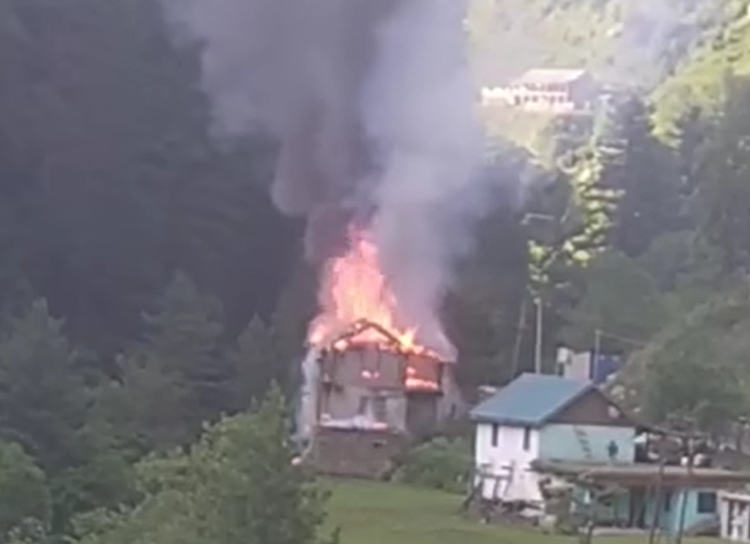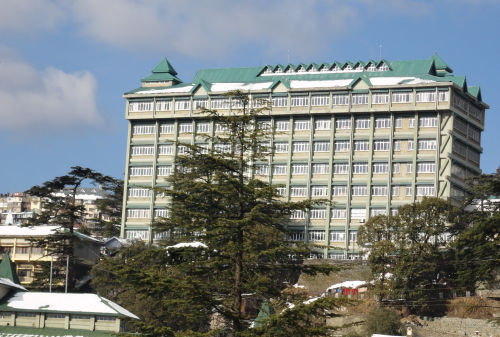Public Fury Erupts Over Brutal Crime, Villagers Take Matters into Their Own Hands
The peaceful town of Chamba was shaken by a violent eruption of public anger following a heinous murder in Bhandal. Infuriated by the gruesome act, an angry mob took matters into their own hands and set fire to the house of the accused in Sanghani. The crowd, which had gathered near the Kihar police station, swiftly carried out their vigilante act before law enforcement could intervene. In a show of protest, they also blocked the Kihar-Langera road using stones and barricades.
Earlier that afternoon, local residents took to the streets in a display of outrage, leading to the closure of Saloni, Sanghani, Lachodi, and Kihar market. The angry mob forcefully entered the police station premises after breaking open the gate. Despite the efforts of Deputy Commissioner Chamba and the Superintendent of Police to pacify the crowd, their attempts proved futile. Slogans demanding justice for the killers echoed through the air for a duration of two hours.
The brutal murder took place in Bhandal panchayat of Saluni sub-division, located in Chamba district. The victim’s dismembered body was discovered dumped in a sack in a drain just last week. The extent of the gruesome act became evident as it was revealed that the body had been brutally cut into 7-8 pieces. The police have since arrested the accused involved in the crime.
Furthermore, in response to the escalating tensions, Chamba District Magistrate, Apoorva Devgan, issued an order enforcing Section 144 in the district for the next two months. The order comes as a precautionary measure to address the influx of outside workers, tenants, and domestic help, ensuring the identification of antisocial elements and individuals who may disrupt social harmony.
Under the provisions of Section 144, the authorities will focus on identifying migrant laborers working for contractors or companies involved in power projects, as well as conducting background checks on individuals engaged in businesses such as selling clothes, shawls, and providing utensil cleaning services from other states. Employers, contractors, and traders will be required to submit detailed information, including a passport-sized photograph, for the identification and verification of migrant laborers at the respective police stations before engaging their services.
Additionally, individuals engaged in self-employment will need to inform the relevant police station. The District Magistrate has directed all Sub-Divisional Magistrates (SDMs) to monitor and regularly review the status of such individuals. Unregistered migrant workers will not be allowed to stay in religious institutions, places of worship, or premises without prior registration at the local police station. Hosts accommodating migrant workers must maintain a record of their guests. Violation of this order will result in legal action under Section 188 of the law.






